Brazil: US Special Services Behind the Turmoil
May 18, 2016
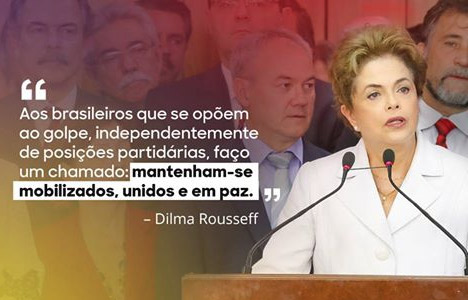
In the eyes of President Barack Obama and his administration, the largest Latin American country is a hostile state because it dares to implement independent policies. The US goal is to subjugate the ruling elite of Brazil and make it dance to the US tune.
This turn of events has been predicted by a number of Latin American presidents, including Rafael Correa of Ecuador, Daniel Ortega of Nicaragua, Evo Morales of Bolivia and Tabaré Vázquez of Uruguay among others. Venezuelan President Nicolas Maduro put it bluntly saying the events in Brazil are nothing else but a coup d’état staged by the US. According to Maduro, the attack against Dilma Rousseff threatens democracy in Brazil. It is also directed against such regional organizations as Celac (the Community of Latin American and Caribbean States), Unasur (the Union of South American Nations), as well as public and political movements protecting people’s interests. Maduro called on all left-wing movements in Latin America to join together and protest against the smear campaign against Brazilian President Dilma Rousseff. The Venezuelan leader believes they must act to protect peace and prosperity on the continent.
The compromising evidence (real and fabricated) used against the Brazilian leadership had been obtained by the US National Security Agency (NSA) before Snowden escaped to make his revelations public. The information was spread around through controlled media to destabilize the country’s political and public life. It will make it easier for Washington to have its people appointed to key positions. The so called «constitutional procedures» to dismiss Dilma Rousseff are nothing else but a camouflage to cover the creeping coup d’état. Obama will go to any length to achieve the goal before his tenure expires. He may even order to stage a Maidan in Brazil, if need be.
Some people among the US embassy staff, as well as in American consulates spread around the country, are already working to carry out the assigned mission.
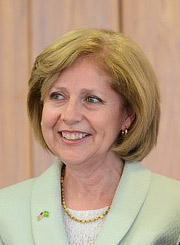
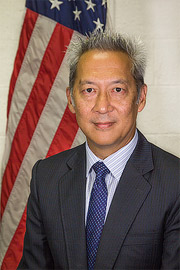
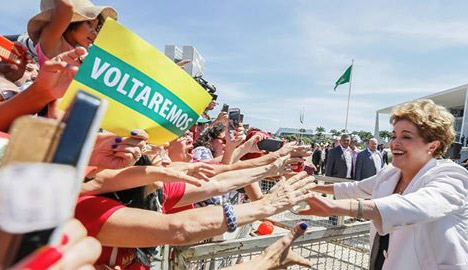
Dilma Rousseff had to step down «temporarily». She called the decision a «political farce» and a «coup». Leaving the presidential palace, she called her removal from power an act of «sabotage» and a tragic day for young Brazilian democracy. Rousseff said it was not her suspension from the office, but the respect for election results, the will of people and the constitution that mattered. «I may have committed mistakes, but I never committed crimes», she said. «It’s the most brutal thing that can happen to a human being – being condemned for a crime you didn’t commit. No injustice is more devastating».
Rousseff struck a defiant tone, condemning the «treachery» of those who sabotaged her government and vowing to fight on against the coup.
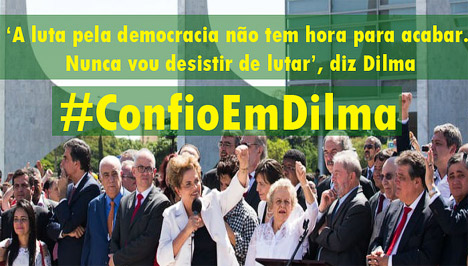
Vice President Michel Temer, who was elected on Rousseff’s coat-tails in 2014, became Acting President. If he ran for office, he would never get more than 2 percent of the votes. He is a kind of a man who always knows where the wind is blowing. Temer is also known as a master of compromise able to form coalitions. Back in the 1990s his Brazilian Democratic Movement Party (PMDB) cooperated with the Brazilian Social Democracy Party led by former President Fernando Henrique Cardoso. In 2003 PMDB formed a coalition with the Workers’ Party headed by Lula da Silva.
Temer formed a new government. One of the first steps was to reduce the number of ministries from 32 to 24. There are no women in the new cabinet. There was no such discrimination in the government of Dilma Rousseff. «Trust me», he said in his emotional inaugural speech at the Planalto presidential palace. «Trust the values of our people and our ability to recuperate the economy». «My first word for the people of Brazil is the word ‘confidence», he said vowing national salvation. «Confidence in the values that form the character of our people, the vitality of our democracy», he added, with an acknowledgement that «it is urgent we pacify the nation and unite Brazil. It is urgent to create a government of national salvation».
He spent most of his speech talking about the damaged Brazilian economy, vowing to renew trust in the country on the part of foreign investors and attract corporations that could provide jobs and take the burden off the government. He did not elaborate on foreign policy issues. He is expected to be a pro-US leader.
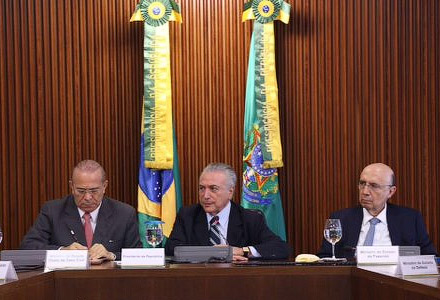
Temer is the son of Maronite Lebanese immigrants. He is a lawyer, who chairs the Brazilian Democratic Movement Party the largest party in Brazil. In the 1980s he served as State prosecutor and twice as State Secretary for Public Security, in both capacities working in São Paulo. That’s when he established close ties with the US embassy.
He took the office of Vice President after standing as the running mate of the Workers' Party candidate Dilma Rousseff in the 2010 election. Actually, he was a US Trojan horse in the administration. His party left the government coalition after the Petrobras scandal broke out.
It should be added that he barely avoided an investigation over testimony implicating him in the Petrobras graft scandal.
The impeachment of Dilma Rousseff paved the way for neo-liberal reforms focused on privatization of state companies. The United States will take an active part in the process. The people who have come to power in Brazil are involved in corruption scandals, but this time their integrity is not questioned by the US.